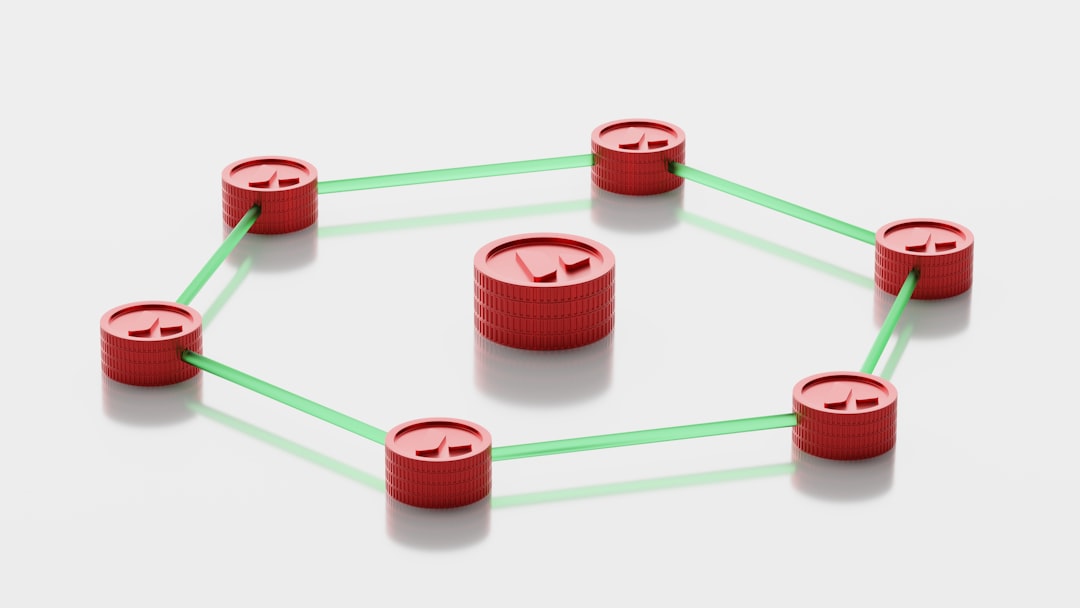Mastering Nomad Taxes and Residency Strategies

Introduction
The digital nomad lifestyle offers the freedom to work from a beach in Bali, a café in Lisbon, or a mountain cabin in Georgia while staying connected to clients and employers around the world. That freedom comes with a hidden complexity: tax and residency obligations. Unlike a traditional employee who files a single return in one country, a nomad may generate income in several jurisdictions, spend time across borders, and own assets in multiple locations.
Mastering nomad taxes and residency strategies means understanding where you are considered a tax resident, how to avoid double taxation, which jurisdictions offer the most favorable regimes, and how to stay compliant without sacrificing the mobility that defines the lifestyle. This guide walks you through the core concepts, practical steps, and common pitfalls so you can design a tax‑efficient residency plan that supports your nomadic aspirations.
Understanding Tax Residency
The Tax Home Concept
Most tax systems distinguish between “tax residence” and “tax home.” Your tax residence determines where you are liable to pay tax on worldwide income, while your tax home is the place you consider your primary economic base. In many countries the two are linked, but they can diverge for nomads who maintain a permanent address in one country while physically spending most of the year elsewhere.
Physical Presence Tests
The simplest way governments decide residency is by counting days spent in the country. The classic “183‑day rule” states that if you are present for more than half the calendar year, you are a tax resident. Some jurisdictions use a rolling 12‑month window, while others have tiered thresholds (e.g., 90 days for non‑resident, 183 days for resident).
Center‑of‑Life Test
When physical presence is ambiguous, many tax authorities look at where your personal and economic ties are strongest. Factors include:
- Where your primary home is located
- Where your family lives
- Where you hold a driver’s license or voting registration
- Where you maintain bank accounts and receive medical care
If more than one country claims you as a resident, the tie‑breaker provisions in double taxation treaties (DTAs) usually apply.
Citizenship vs. Residency
Citizenship alone rarely triggers tax liability unless you are a U.S. citizen or a citizen of a country with worldwide taxation (e.g., Eritrea). Most countries tax based on residence, not citizenship, which gives nomads the flexibility to change residency without renouncing citizenship.
Key Tax Concepts for Nomads
Worldwide Income
If you are a tax resident of a jurisdiction that taxes worldwide income, you must report all earnings—salary, freelance fees, investment dividends, capital gains, and even cryptocurrency proceeds—on that country’s tax return.
Territorial Tax Systems
Some nations, such as Panama, Hong Kong, and Singapore, tax only income sourced within their borders. For a nomad, establishing residency in a territorial jurisdiction can dramatically reduce tax liability, provided the income is truly foreign‑sourced.
Double Taxation Treaties
DTAs are bilateral agreements that allocate taxing rights between two countries and often provide relief through tax credits, exemptions, or reduced withholding rates. Knowing whether a treaty exists between the countries you spend time in can prevent you from paying tax twice on the same income.
Social Security Agreements
Many countries have “totalisation agreements” that coordinate social security contributions. If you work remotely for an employer in one country while residing in another, a totalisation agreement can prevent you from paying into both systems simultaneously.
Choosing a Favorable Jurisdiction
Factors to Evaluate
- Tax Regime Type – territorial vs. worldwide
- Personal Income Tax Rate – marginal rates, progressive brackets, flat rates
- Corporate Tax Considerations – useful if you incorporate a personal service company
- Residency Requirements – minimum stay, investment thresholds, language tests
- Quality of Life – safety, internet connectivity, health care, cost of living
- Visa Flexibility – dedicated digital nomad visas, long‑term stay options
Popular Nomad‑Friendly Countries
Portugal
- Non‑Habitual Resident (NHR) Scheme offers a flat 20 % tax on Portuguese‑source professional income and tax exemption on many foreign‑source incomes for ten years.
- Requires a minimum of 183 days in Portugal or a permanent residence that suggests an intention to stay.
Georgia
- Remotely from Georgia program allows stays of up to one year with a low flat personal income tax of 20 % on Georgian‑source income only.
- No minimum stay for tax residency; you become a tax resident after 183 days.
Mexico
- Temporary Resident Visa for up to four years, with a relatively low personal income tax rate that tops out around 30 %.
- If you spend less than 183 days, you can remain a non‑resident and only pay tax on Mexican‑source income.
United Arab Emirates
- No personal income tax, no capital gains tax, and a straightforward residency process based on property rental or company sponsorship.
- Requires a physical presence for at least 90 days per year to maintain residency.
Estonia
- e‑Residency enables you to register an EU company online, but personal tax residency remains separate.
- The corporate tax system is unique: profits are only taxed when distributed, which can be advantageous for freelancers.
Costa Rica
- Rentista Visa grants residency for individuals who can demonstrate a stable monthly income of at least USD 2,500 for two consecutive years.
- Territorial tax system means only Costa Rican‑source income is taxed.
Emerging Options
Countries such as Barbados, Bermuda, and the Cayman Islands have introduced digital nomad visas that grant legal stay for up to 12 months, often with minimal tax obligations. Keep an eye on policy changes; many governments are experimenting with “tax‑friendly nomad” regimes to attract high‑skill remote workers.
Practical Steps to Establish Residency
Step 1 – Clarify Your Tax Home
Identify the jurisdiction where you intend to claim tax residency. Consider where you own or rent a long‑term dwelling, where your family resides, and where you hold primary banking relationships.
Step 2 – Research Visa Options
Determine the visa that matches your intended stay length and purpose. Many countries now issue “digital nomad” or “remote worker” visas that allow stays of 6‑12 months and are renewable.
Step 3 – Open Local Banking
Establish a local bank account in the target jurisdiction. This supports proof of residence, simplifies paying local expenses, and can be used to receive salary or client payments without triggering withholding.
Step 4 – Register with Tax Authorities
If you meet the residency threshold, file the appropriate registration forms (e.g., Portuguese “Declaração de Início de Atividade,” Georgian “Taxpayer Registration”). Some jurisdictions require you to obtain a tax identification number (TIN) within a set period after arrival.
Step 5 – Align Your Business Structure
Choose a business entity that complements the tax environment. Options include:
- Sole proprietorship – simplest, but income is taxed as personal income.
- Limited Liability Company (LLC) – offers liability protection; tax treatment varies by country.
- International Business Company (IBC) – often used for offshore invoicing, but be aware of substance requirements.
Step 6 – Document Physical Presence
Maintain a detailed travel log (date, country, purpose) to prove days spent in each jurisdiction. This log becomes essential if tax authorities question your residency status.
Step 7 – Review Double Taxation Treaties
If you will earn income sourced from multiple countries, confirm whether DTAs exist and how they allocate taxing rights. Use the treaty’s “tie‑breaker” rules to establish which country has primary taxing authority.
Step 8 – Plan for Social Security
Determine where you must contribute to social security or pension schemes. In many cases, you can remain covered in your home country if you retain an employment contract there, but totalisation agreements may offer alternatives.
Step 9 – Set Up Accounting and Reporting
Choose accounting software that supports multi‑currency and multi‑jurisdiction reporting. Keep receipts, invoices, and bank statements organized to simplify year‑end filing.
Step 10 – File Annual Returns
Even if you are a non‑resident, many countries require a “zero‑income” return or a declaration of foreign income. Missing these filings can trigger penalties or loss of residency status.
Maintaining Ongoing Compliance
Monitor Day Counts
A change in the number of days spent in a country can switch you from non‑resident to resident status automatically. Use calendar alerts to stay within desired thresholds.
Keep Address Records Current
Update your address with tax authorities whenever you move, even if you remain a resident for tax purposes. Failure to do so can be interpreted as abandoning residency.
Review Income Sources Regularly
If a new client or investment starts generating income sourced in a new jurisdiction, reassess the tax implications. Some countries tax income based on where the payer is located, while others look at where the service is performed.
Stay Informed on Legislative Changes
Tax laws evolve quickly, especially as governments adapt to the rise of remote work. Subscribe to newsletters from reputable tax advisory firms and monitor official tax authority bulletins.
Conduct Annual Residency Review
At the end of each fiscal year, evaluate whether your current residency remains optimal. Factors such as changes in personal income level, family situation, or travel patterns may warrant a shift to a different jurisdiction.
Income Types and Their Tax Treatment
Salary and Employment Income
- Employee Status – If you remain on a payroll of a foreign employer, the income may be subject to withholding in the employer’s country.
- Remote Work Exception – Some jurisdictions treat remote work for a foreign employer as foreign‑source income, which can be exempt under a territorial system.
Freelance and Consulting Fees
- Generally considered self‑employment income.
- In a territorial tax regime, fees earned from non‑resident clients are usually tax‑free.
- In a worldwide system, you must declare the total amount and may be able to claim business expenses.
Dividend and Interest Income
- Often taxed at source in the country of the paying entity.
- Treaties may reduce withholding rates (e.g., 15 % instead of 30 %).
- In many territorial jurisdictions, foreign dividends are not taxed at all.
Capital Gains
- Some countries tax only on gains from real estate or assets located within their borders.
- Others tax worldwide capital gains, but may provide exemptions for assets held for a certain period.
Cryptocurrency
- Tax treatment varies widely: some jurisdictions classify crypto as property, others as currency, and a few treat it as tax‑free.
- Keep detailed transaction logs (date, amount, counterparties, purpose) to support reporting.
Social Security, Health, and Pension Considerations
Social Security Contributions
- If you are employed by a company in a country with a social security agreement, contributions may be mandatory regardless of where you live.
- For self‑employed nomads, many jurisdictions require voluntary contributions to access health care or retirement benefits.
Health Insurance
- Many digital nomad visas require proof of private health coverage that is valid in the host country.
- International health insurance plans can provide continuity across borders, but verify that the plan complies with local regulations.
Pension Planning
- Contributing to a pension scheme in a low‑tax jurisdiction can defer tax on earnings until withdrawal.
- Some countries allow “portable” pension contributions that remain tax‑advantaged even when you relocate.
Banking, Payments, and Financial Planning
Multi‑Currency Accounts
- Opening accounts in stable currencies (USD, EUR, GBP) reduces exchange‑rate risk and simplifies invoicing clients worldwide.
- Fintech providers such as Wise, Revolut, and N26 offer borderless accounts with local IBANs.
Credit Cards
- Choose cards with no foreign transaction fees and robust security features.
- Consider a mix of a personal card for everyday spending and a corporate card for business expenses.
Currency Conversion Strategies
- Use market‑rate conversions for large transfers to avoid hidden spreads.
- Hedge exposure with forward contracts if you have predictable future income in a foreign currency.
Asset Protection
- In high‑tax jurisdictions, consider establishing an offshore trust or foundation to protect assets.
- Ensure compliance with reporting obligations such as FATCA (U.S.) and CRS (OECD).
Common Pitfalls and How to Avoid Them
Ignoring Day‑Count Rules
Many nomads think they can stay indefinitely as a “tourist” without tax consequences. Once you exceed the residency threshold, you become liable for worldwide tax. Track days meticulously.
Relying on One‑Year Visa Renewal
Renewing a visa without reviewing your tax residency can lock you into an unwanted tax position. Use each renewal as an opportunity to reassess your residency strategy.
Overlooking Source‑Based Taxation
Even in a territorial system, income generated from activities performed within the country may be taxed. Clarify whether your remote work is deemed “performed” locally.
Failing to Claim Treaty Benefits
If a treaty exists, you often need to submit a claim (e.g., Form 6166 for the U.S.) to benefit from reduced withholding. Missing the paperwork results in higher tax outflows.
Mixing Personal and Business Finances
Co‑mixing can trigger audit red flags and make expense deductions harder to substantiate. Maintain separate accounts and clear documentation.
Neglecting Reporting of Foreign Assets
Many jurisdictions require disclosure of foreign bank accounts, securities, and real estate. Penalties for non‑disclosure can be severe, even if no tax is due.
Tools and Resources
- Travel Calendar Apps – Simple spreadsheet or apps like “TripIt” to log daily locations.
- Tax Residency Calculators – Online tools from tax firms (e.g., PwC, Deloitte) that estimate residency based on days and ties.
- Accounting Software – Xero, QuickBooks Online, or Wave support multi‑currency and tax reporting.
- Legal Services – Platforms such as “Nomad Legal” and “LegalZoom International” offer residency and incorporation assistance.
- Community Forums – Reddit’s r/digitalnomad, Nomad List, and Facebook groups share real‑time experiences and updates.
Action Plan Checklist
- Define your primary tax home – Choose a jurisdiction aligned with your long‑term goals.
- Secure a suitable visa – Apply for a digital nomad or long‑term stay visa before departure.
- Open a local bank account – Provide proof of address and obtain a TIN.
- Register with tax authorities – File the residency registration within the required timeframe.
- Set up accounting – Choose software, create separate business accounts, and start logging transactions.
- Document travel – Keep a day‑by‑day record of countries visited and nights spent.
- Review DTAs – Identify treaty provisions that apply to your income sources.
- Plan social security – Determine contributions and whether a totalisation agreement is available.
- Obtain health coverage – Purchase a policy that meets visa requirements and covers your travel region.
- Schedule annual reviews – At the end of each fiscal year, assess residency status, tax liability, and whether a change is beneficial.
Conclusion
Navigating taxes and residency as a digital nomad is not a one‑size‑fits‑all endeavor. It requires a clear understanding of where you are considered a tax resident, how different income streams are treated, and which jurisdictions offer the most favorable combination of low rates, territorial principles, and flexible visas. By following a structured approach—choosing the right home base, maintaining meticulous records, leveraging double taxation treaties, and staying current on legal changes—you can protect your earnings, avoid unexpected liabilities, and keep the focus on the freedom that attracted you to the nomadic lifestyle in the first place.
Remember that tax planning is an ongoing process. As your travel patterns, income levels, and personal circumstances evolve, so too should your residency strategy. Treat your tax plan as a living document, revisit it regularly, and seek professional advice when complexities arise. With the right foundation, you can master nomad taxes and residency, turning the administrative side of remote work into a smooth, almost invisible backdrop to the adventures that lie ahead.
Random Posts

Unlocking Global Productivity Through Remote Coworking Hubs
Remote coworking hubs turn cities into productivity hotspots, giving digital nomads and distributed teams high speed internet, inspiring design, and vibrant networks that power global collaboration.
4 weeks ago

How to Manage Money and Taxes on the Road
Learn how to keep your finances smooth on the road: pick a reliable home bank, use low cost international transfers, stay tax compliant, and protect yourself with the right insurance while you travel.
2 months ago

Best Places to Work Anywhere and the Gear That Powers You
Discover top remote work hotspots from Bali cafés to Colorado cabins and the essential gear that keeps you fast, comfy and connected wherever you set up shop.
2 weeks ago

Offshore Strategies and Legal Hacks for Modern Nomads
Learn how modern nomads can protect assets, cut tax leakage and stay compliant by using offshore structures, smart residency planning, travel-proof banking, and legal hacks, all in one clear roadmap.
3 weeks ago

Global Food Hacks for Healthy Nomadic Living
Discover simple food hacks for digital nomads: source smart, prep fast, eat mindfully. Boost energy, enjoy local flavors, and stay healthy on the move with practical tips you can use anywhere
2 months ago
Latest Posts

Essential Software Every Remote Professional Should Use
Master remote work with essential tools: instant messaging like Slack, high definition video calls such as Zoom, and asynchronous voice apps. Streamline communication, stay connected and boost productivity.
1 day ago

Mastering Remote Work Productivity for Digital Nomads and Freelancers
Learn proven habits, tools, and tactics that help digital nomads and freelancers stay focused, deliver quality work, and maintain a sustainable lifestyle while traveling the world.
1 day ago

Tech‑Friendly European Towns Perfect for Remote Living
Discover Europe’s best small towns where fast internet, affordable living and vibrant tech communities let you work remotely while soaking up historic charm, lakeside views or mountain air.
1 day ago